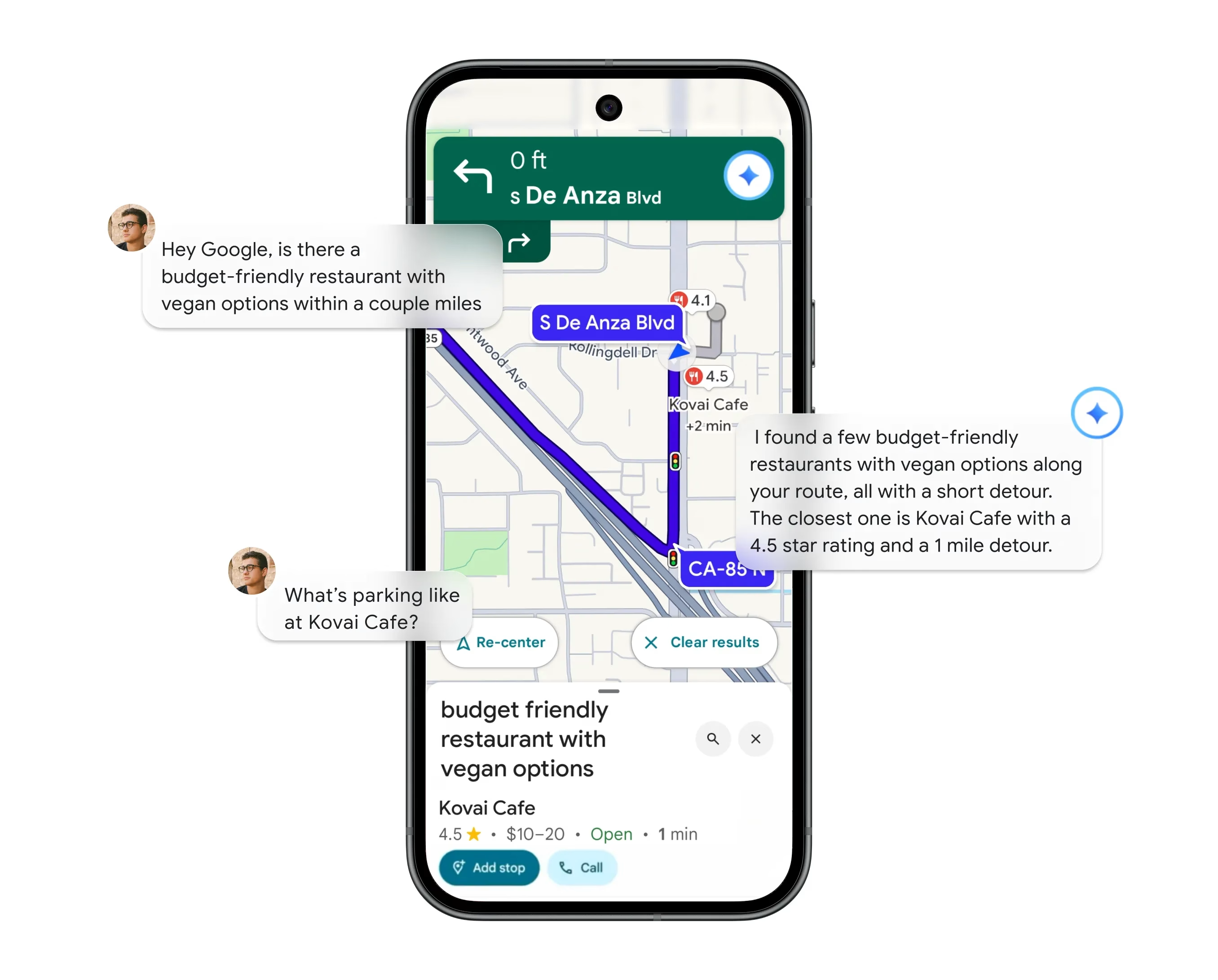Google Maps Integrates Gemini AI for Conversational Navigation and Proactive Alerts
Google Maps is significantly expanding its capabilities by integrating Gemini AI, ushering in a new era of "conversational" route planning and enhanced navigation features. Officially announced on October 28, 2025, and beginning a phased global rollout on October 30, 2025, these updates allow users to interact with Maps more naturally, leveraging AI for everything from recommending restaurants along a route to providing directions based on visual landmarks. The rollout is free for all signed-in Android and iOS users, with in-vehicle integration slated for Q1 2026.
This evolution builds on Maps' 2024 Immersive View updates and is set to transform the user experience. "We’ve often envisioned navigating with Maps as being your all-knowing copilot," stated Amanda Moore, Google Maps Product Director, during a briefing. This vision aims to provide "exactly the information you need when you need it and taking the stress out of getting from A to B."
Enhanced Conversational Route Planning
The core of this integration lies in Gemini’s ability to handle open-ended questions directly within Maps, whether users are driving or walking. The system intelligently combines Maps' extensive geographical data with local insights, offering comprehensive answers about businesses and destinations. For instance, a user could ask Gemini for Italian restaurant recommendations along a current route and then seamlessly request a reroute to one of the suggested places.
This conversational interface extends beyond simple navigation. Users can report real-time hazards like vehicle crashes, or even get summaries of recent events and emails during their commute. Gemini can also access other Google applications, such as Calendar, allowing users to add event reminders to their schedule mid-conversation, all within the Google Maps interface. Vishal Dutta, Group Product Manager for Google Maps, highlighted this interoperability: "It’s connecting the dots between trusted information from the web, reviews from the Maps community, and all the rich geospatial data that Maps has. And then Gemini pulls it all together with its summarization capabilities into one clear, helpful answer you can act on instantly while you’re on the go." He added, it would feel like having "a friend who’s a local expert in the passenger seat."
Landmark-Based Navigation and Proactive Alerts
Google is also improving audible directions by moving beyond traditional distance-based instructions. The new system leverages recognizable visual cues like gas stations, restaurants, or distinctive landmarks. Gemini processes billions of Street View images and cross-references them with Google Maps’ live index of over 250 million places. This enables highly accurate "visual cue" directions, which Google claims are 95% accurate in tested scenarios.
Another significant addition is Proactive Traffic Alerts. Designed for routine commutes where users might not typically open Maps, Gemini monitors the route in the background. It automatically alerts drivers to approaching disruptions—such as crashes, construction, or road closures—early enough to suggest rerouting and avoid delays. Beta testing showed these alerts helped users avoid delays in 78% of routine commutes, saving an average of 12 minutes per trip in high-traffic cities. Furthermore, Google Lens is now integrated into Maps, powered by Gemini. Users can point their phone camera at a location to instantly receive details about landmarks or businesses through natural conversation.
Rollout, Reliability, and Initial Reception
The new Gemini AI features are rolling out globally, with full availability expected by mid-November 2025. While the US and North America saw the initial launch, Europe is slated for a November 15, 2025, rollout following GDPR compliance checks, which were approved on November 4, 2025. Asia-Pacific regions like Japan and India received early access from November 1, 2025, with region-specific optimizations, including Hindi query support in India.
Google emphasizes that Gemini’s navigation features are "grounded in our place information," as Moore reiterated, ensuring accuracy for place-based queries and aiming for zero hallucinations. Initial community feedback on platforms like Reddit and X is mixed-positive, with users praising the conversational ease but noting minor issues such as occasional voice command lag on iOS and some inaccurate landmark recognition in rural areas. Tech analysts like Ming-Chi Kuo predict Gemini’s integration could boost Maps’ market share by 5% in 2026, while privacy experts from the EFF suggest users remain cautious about data sharing across Google apps.
